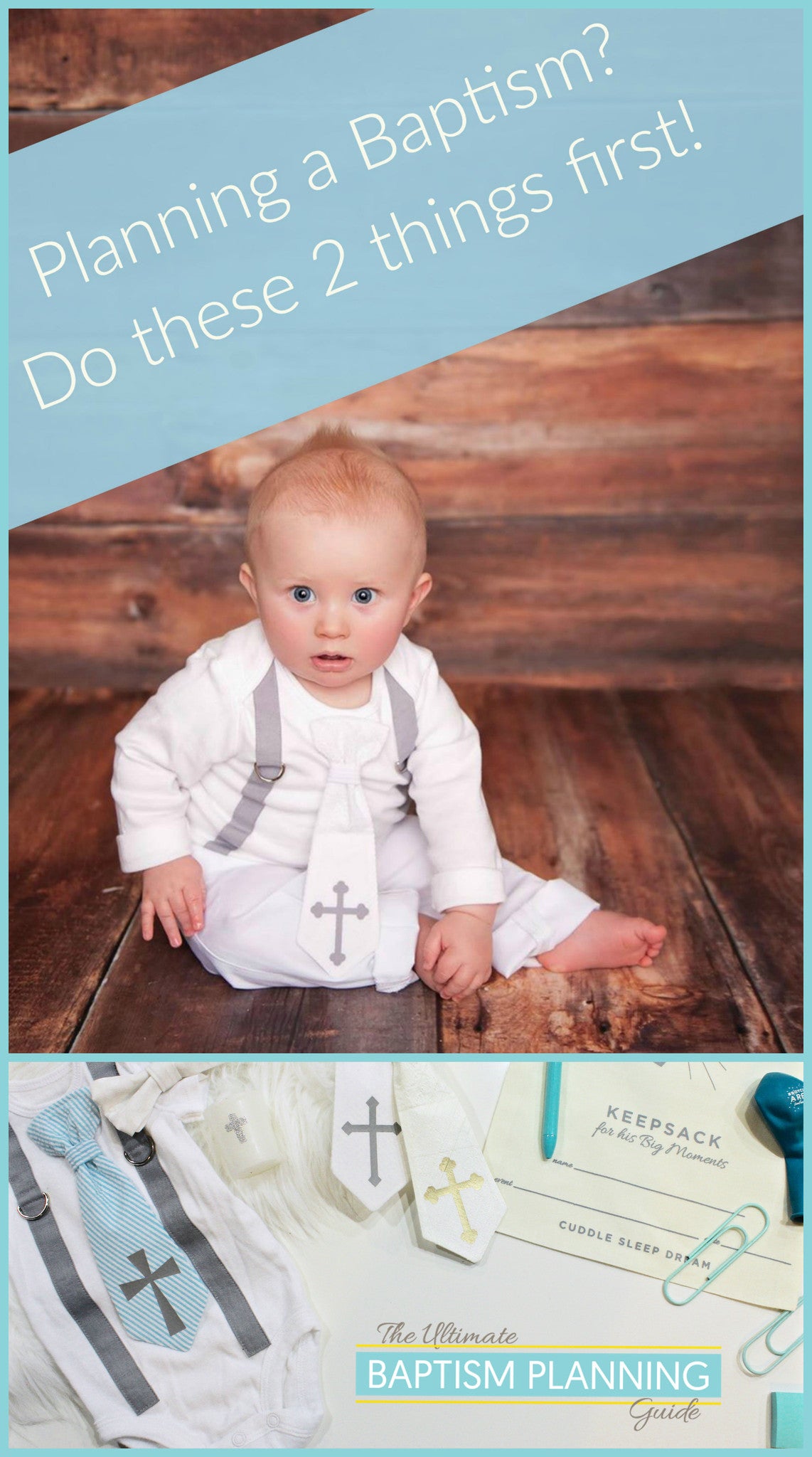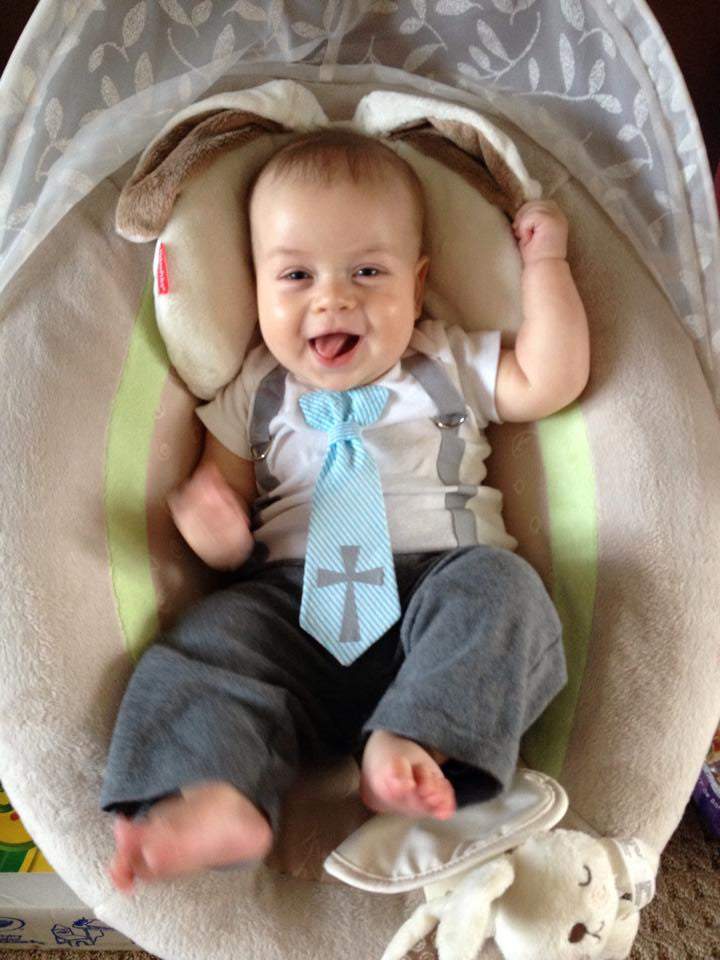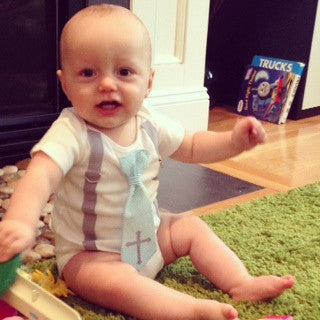Your Cart is Empty
Your baby boy is here! You’re basking in that new mommy glow and hopefully spending some much needed time off and snuggle moments with your little one.
Life is also busy. You aren’t sleeping. You’re covered in spit-up, milk and diaper cream and just when you thought you couldn’t get any busier, it’s time to plan a major event: The Baptism!

We are creating a series of articles to take you through all stages of planning this big event. First up, the baptism outfit! Just kidding, the first thing to plan is the ceremony.

When planning your baby's baptism ceremony, you will need to do two things first:
Step 1. Find out your church's requirements
When it comes to planning the ceremony, your church sets the rules. But learning the requirements of the ceremony is the first big step for planning your baby's special day!
Ask your priest (we are going to say priest throughout this guide, but depending on the religion: pastor, minister or reverend would be the correct term) what the ceremony will entail so you can prepare regarding length, family involvement, photos, etc. You don't want to be surprised by what you can or cannot do the day of the baptism!
Depending on your religion and home church, the ceremony, symbolism, and requirements surrounding it will be different.
Generally speaking, the christening ceremony often includes a water ritual (ranging from sprinkling to dunking), a prayer, and a promise from the parents and/or godparents to raise the baby in the faith.
Infant baptism is practiced in many major Christian denominations, including Catholic, Orthodox, Presbyterian, Methodist, and Lutheran faiths. LDS churches do not baptize infants, but have a similar ceremony for infant blessings.
Here are some more specific links to learn about what to expect at the ceremony, what it symbolizes, and what requirements may exist for some of faiths that practice infant baptisms or dedications.

Step 2. Pick or be assigned a date.
Churches also have different requirements as to the age of the baby - some prefer newborns, others prefer older babies, and still others do not perform infant baptism at all.
You and your spouse may have to attend a baptismal class or classes. Contact your church for details. Often, these classes are only held quarterly or a few times a year, so you'll want to attend one as close to the birth or after the birth of your baby as you can.
Some religions and churches have "blackout dates" - beware! For example they may not allow baptism ceremonies to take place during lent or advent. Some churches do all baptisms during just one day a month, while others may let you choose any Sunday.

Bonus Tips
We asked moms who have planned baptisms for advice on planning the ceremony, here's what they had to say:
“I would look into the schedule for baptism prior to the birth of your baby. Have a church and a venue in place before the baby is born. Churches and venues fill up quickly.” - Taryn P from New York
“Depending on your church's requirements, you may want to start planning for the baptism well before baby is even born. Our church has a several month waiting period to take the class and could have potentially delayed when we were able to baptize our son.” - Elise
"Start planning before the baby." - Laurie Anne
“Our priest was old school Irish and had the godparents run to open and close doors of the church to let out Satan, plus there were readings during the ceremony that we had to ask family members to do.” - Amanda
Have you already had a baptism for your little one? We'd love to hear any tips you have!
We'll be back soon with Part 2 of our Ultimate Baptism Planning Guide (it's all about Godparents!)
Comments will be approved before showing up.
Katie Dunn
September 23, 2017
My husband is Catholic, and so we are planning on having our baby go through infant baptism. However, I had no idea that some churches have huge waiting periods. Because of this, I’m going to call up the priest and see what our waiting period looks like. I think that I will also ask him whether or not someone who isn’t Catholic could be considered as a godparent. http://www.detailsandtraditions.com/category-s/148.htm